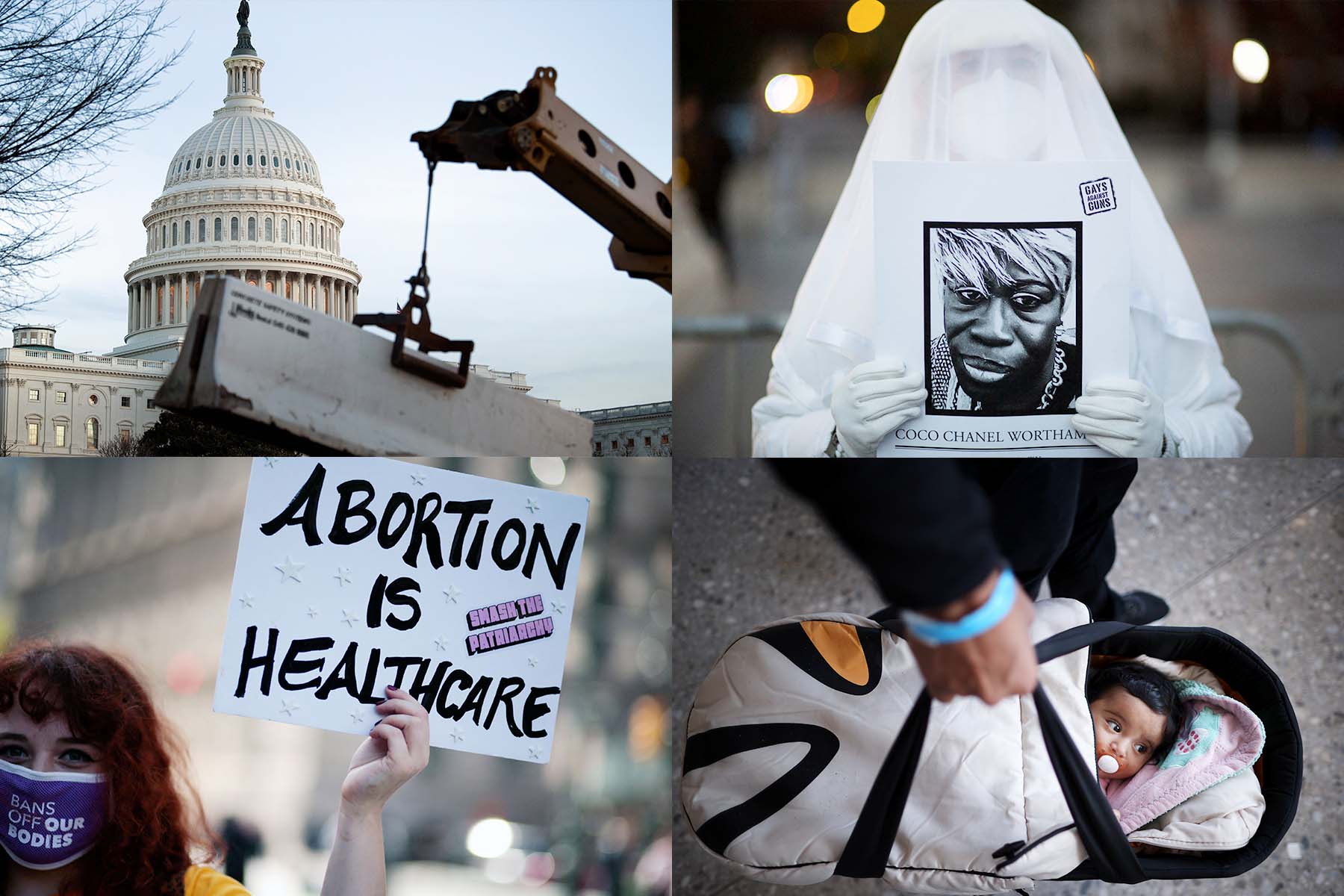Last year was a busy one: The 19th added five reporters in 2021, investing in coverage of education, caregiving and more issues important to our audience. We covered how Congress’s actions would affect parents and caregivers, the start of a new administration, the laws and court cases over abortion policy, the COVID-19 pandemic and more.
As we enter our third year of existence — and the third year of the pandemic — we are looking forward to continuing to cover politics and policy and how they affect women and LGBTQ+ people. That means the midterm elections, what legislation gets passed and how people are impacted by what their elected or appointed officials do. Here is what our reporters plan to examine in 2022. What else do you want to see from The 19th this year? Email us at [email protected] or fill out a form here.
I can’t believe I’m about to write this: We’re headed into another election year. Roughly a third of the Senate and all 435 House members will be up for reelection in 2022. Women will be competing in some of the country’s most competitive races — Democratic Sens. Catherine Cortez Masto in Nevada and Maggie Hassan in New Hampshire will have tough general elections, Republican Sen. Lisa Murkowski will be fending off a Trump-backed rival in Alaska, and Pennsylvania and Virginia will have House races that could determine party control of that chamber. What will it mean for women, marginalized communities and LGBTQ+ people? That’s what I’ll be tracking next year. — Amanda Becker, Washington correspondent
As the economic fallout of the pandemic extends into a third year, we will continue to explore how it’s changing people’s relationship with work, and who is being left behind in the process. As that happens, we will take a closer look at the shifting nature of the labor movement, which will likely take a more defined form in 2022.
Funding from a bevy of new economic policies will start to reach states (and regular people) next year as well. Following its trajectory, who it helps — and who it doesn’t — will be key to our reporting. The potential to make a historic investment in care infrastructure just suffered a huge blow; can it, or parts of it, be revived? If it is, we will be taking a look at the new state of care work and child care in this country. — Chabeli Carrazana, economy reporter
In 2022 I will be watching how (and if) Build Back Better passes, and with it a major investment in home- and community-based care. It’s probably too soon to declare the package dead, but it is certainly in jeopardy.
The amount for such care in the House bill was already insufficient to transform the industry. Advocates worried it could pit people with disabilities against organized labor. And, if money does come through, how the funds are distributed will vary considerably from state to state, as Medicaid, the biggest funder of long-term care in the United States, is highly localized. Some states could choose not to take the money at all, as they did with Medicaid expansion.
If Democrats can’t deliver on promises to help fix long-term care, what happens next, both politically and for the people who provide and receive such care? — Sara Luterman, caregiving reporter
In 2022, I plan to continue following the health policy debates we’ve robustly covered this past year. And, in true 19th fashion, I hope to do so by focusing most on the people affected.
Abortion policy has been and will continue to be a major story. If Roe v. Wade is overturned, undoing almost 50 years of federally protected abortion rights, who will be affected? How will their lives change? How will the impact differ in Democrat- vs. Republican-led states?
But also, the COVID-19 pandemic has not ended, and women in particular are bearing much of the social and psychological burdens. Can President Joe Biden and other Democrats follow through on proposals to curb drug prices and expand insurance access? What would these policies look like in practice? — Shefali Luthra, health care reporter
In 2022, I’d like to continue highlighting where education and politics intersect, whether it’s book-banning efforts led by politicians or the pressure on the Biden administration to forgive student loans. I also plan to examine the impact repealing abortion rights has on students.
Finally, I would like to dig deeper into stories not driven by news headlines, such as the lingering effect of racial segregation on schools today. — Nadra Nittle, education reporter
Forty federal judicial nominees have been confirmed under President Joe Biden so far. A notable number of these are women of color who come from broader legal backgrounds like former public defenders and civil rights lawyers. The president has also promised to nominate the country’s first Black woman to the Supreme Court, though it’s uncertain when there will be a new vacancy. Next year, with some of the country’s most controversial legal issues at stake, I will be keeping an eye on these changes to the federal judiciary and examining what they mean for the country. — Candice Norwood, breaking news reporter
At the tail end of 2021, the Senate passed the annual defense bill — $770 billion to the country’s defense agencies and military funding — which included key changes for women. I will continue covering the bill’s implications, and other issues women and LGBTQ+ people in the military face, including gender-based financial inequities, military justice and the alarming rate of suicides. For the first time in two decades, the United States is not at war, but military service members’ mental health is at an all-time low after the chaotic evacuation from Afghanistan. Meanwhile, thousands of Afghan women refugees continue to process their own trauma as they forge new lives in this country. — Mariel Padilla, general assignment reporter
My beat has given me immense leeway to explore state-level politics and how policy decisions in statehouses and city councils impact the most marginalized. In 2022, I will keep centering the voices of people outside of the halls of Congress. I will track how debates over democracy and voting shape the midterm elections. I also aim to cover the women, particularly women of color, and LGBTQ+ people who would be a “first” in office. What do these dynamics tell us about what America is now? — Barbara Rodriguez, statehouses reporter
Next year, I will continue to focus on how politics and policies affect the lives of LGBTQ+ people, and spend more time digging into issues that LGBTQ+ women are facing. During an important election year, I want to write about LGBTQ+ people running for office and track the consequences of anti-trans bills brought around the country with my colleague Kate. I also plan to examine bureaucratic hurdles to health care that trans and gender-noncomforming people are still experiencing in a pandemic — and to center LGBTQ+ voices in every story I can. — Orion Rummler, breaking news reporter
In 2022, I will be watching to see if Republican lawmakers work to use LGBTQ+ people as a wedge issue in the midterm elections. A recent poll by the Human Rights Campaign found that at least 60 percent of Trump voters in swing states wanted trans people to be able to live freely and openly. Still, 10 states passed anti-trans bills in 2021. That climate chilled progress for the long-awaited Equality Act, which would have granted LGBTQ+ people federal protection from discrimination.
Still, because people of all political stripes have queer friends and family, blatant homophobia is now seen as political poison. How do lawmakers talk about LGBTQ+ people, and what measures do they take to protect or restrict their rights? — Kate Sosin, LGBTQ+ reporter




